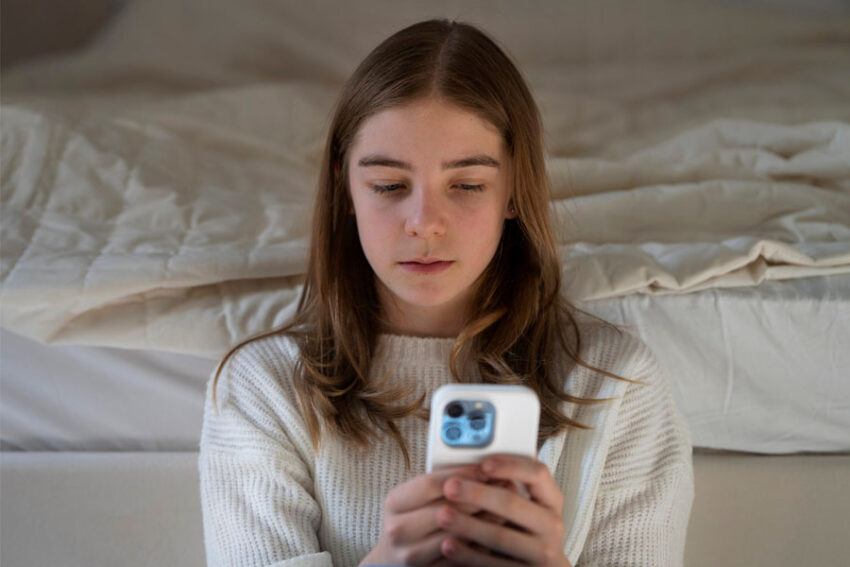Wellness and mental health apps have become increasingly popular in recent years, as more people seek out convenient, accessible, and affordable ways to manage their mental health.
Fortunately, conversations about mental health are plentiful, and plenty of apps can help you cope with anxiety and its symptoms.
However, it’s important to note that these apps aren’t a substitute for professional help. So, if you’re looking for useful wellness and mental health apps for coping with anxiety, we’ll a list of the best options.
Understanding Anxiety
Anxiety is one of the most common mental health issues, affecting millions worldwide. It’s important to reframe how you think about anxiety and accept it as a normal and often healthy emotion.
The crucial factor is how to deal with it healthily when it becomes disproportionate. Moreover, identifying the type of anxiety will help you deal with it better.
Types of Anxiety
There are different types of anxiety disorders, including:
- Generalized anxiety disorder (GAD)
- Panic disorder
- Social anxiety disorder (SAD)
- Obsessive-compulsive disorder (OCD)
- Post-traumatic stress disorder (PTSD)
Causes of Anxiety
Anxiety disorders can arise due to several factors, including:
- Genetics
- Environmental factors
- Brain chemistry
- Medical conditions
- Substance abuse
Symptoms of Anxiety
The symptoms of anxiety can vary depending on the type of disorder, but the most common symptoms include:
- Excessive worry or fear
- Restlessness or agitation
- Difficulty concentrating
- Muscle tension
- Sleep disturbances
It’s worth noting that according to the DSM, symptoms of a disorder become an issue worth addressing through professional help when they persist for longer than 14 days.
Not only that but when these symptoms hinder the individual’s capability to actively and positively participate in their daily life.
Wellness and Mental Health Apps

Photo credit: Freepik @ellesrijsdijk
Wellness and mental health apps work by providing users with various features and tools such as guided meditation, breathing exercises, and cognitive-behavioral therapy (CBT) techniques.
Some even go the extra mile to provide mood tracking, journaling, and goal setting to help users monitor their progress as well as stay motivated.
Most apps use evidence-based techniques and strategies to help users manage their mental health conditions.
For example, mindfulness-based stress reduction (MBSR) and acceptance commitment therapy (ACT) are the most common techniques you can find on these apps.
So, let’s look at the available options.
1. BreathingRoom
BreathingRoom is an affordable, accessible mental health resource, created by and for young people to help them learn to cope with life challenges. Universal teachings and practices promote expanded self-connection leading to positive cognitive shifts and improved mood.
Further, BreathingRoom provides mental wellness support via a digital app or website with 24/7 access.
If you’re ready to feel better about yourself and your life but aren’t sure how BreathingRoom might just be what you’re looking for.
It’s available for iOS and Android — so, you get to practice mindfulness and wellness anywhere, no matter the device.
2. Calm
Calm is one of the most popular apps for wellness and mental health. It offers guided meditation, sleep stories, and breathing exercises to help individuals manage anxiety and stress.
The app also offers daily mindfulness reminders and personalized meditation recommendations based on the user’s goals and preferences.
It focuses on helping you with improving sleep quality, reducing stress and anxiety, improving focus, self-improvement, or other manifestations.
It starts with a 7-day trial during which you can experience the app. After that, the subscription to premium content costs $69.99 per year or $14.99 per month. There’s even a family plan that costs $99.99 for six premium accounts or a lifetime membership for $399.99.
The app is available on iOS and Android.
Calm is ideal for those who have some experience with meditation and already have a plan or structure for their wellness approaches.
3. Headspace
Headspace is another well-known app that offers guided meditation and mindfulness exercises.
The app also offers sleep sounds and music to calm you and help you fall asleep more easily, so it’s a good choice if your anxiety manifests as sleep disturbances.
It offers a trial period, and after that, you can subscribe for continued access to the app’s features. You can continue for free with limited features or subscribe for the full package for $12.99 per month or $69.99 per year.
It’s available for iOS and Android. Headspace suits beginners that are looking to create a structure for how they practice wellness and mental health management.
4. Mindshift
Mindshift is quite informative as it comes with thorough information regarding the nature and signs of anxiety, phobias, panic attacks, and perfectionism.
Not only that, but you can read about the theory basics for several psychological issues including anxiety, general worry, and others.
Mindshift would suit you if you’re looking to identify the sources of your discomfort and anxiety. From there, you can start working on addressing the causes and finding the best way to tackle them.
In other words, if you’re still trying to understand your emotions, the app can take input from you and diagnose your emotions.
It’s available for Android and iOS and is free. However, it does ask you for plenty of personal information, which may bother some users and delay the beginning of their healing journey.
Final Thoughts
In conclusion, mental health and wellness apps can be extremely effective tools when it comes to managing symptoms of anxiety.
Not all of them will provide the same number of evidence-based techniques and features—and you might not need all the bells and whistles.
Pinpoint your type of anxiety and the symptoms you want to deal with and find the one that’s most compatible with you.
Better yet, you can consult a healthcare provider to find the best app for your needs. And remember, as long as you’re taking positive actions to develop adaptive coping mechanisms, you can ease the symptoms and manage them more healthily.
Image Credit: Freepik
This article is published by our independent team of health and wellness pundits that publish original and informative content to empower readers to take charge of their health and embark on a physically, mentally, and emotionally balanced lifestyle.







































Leave a Reply